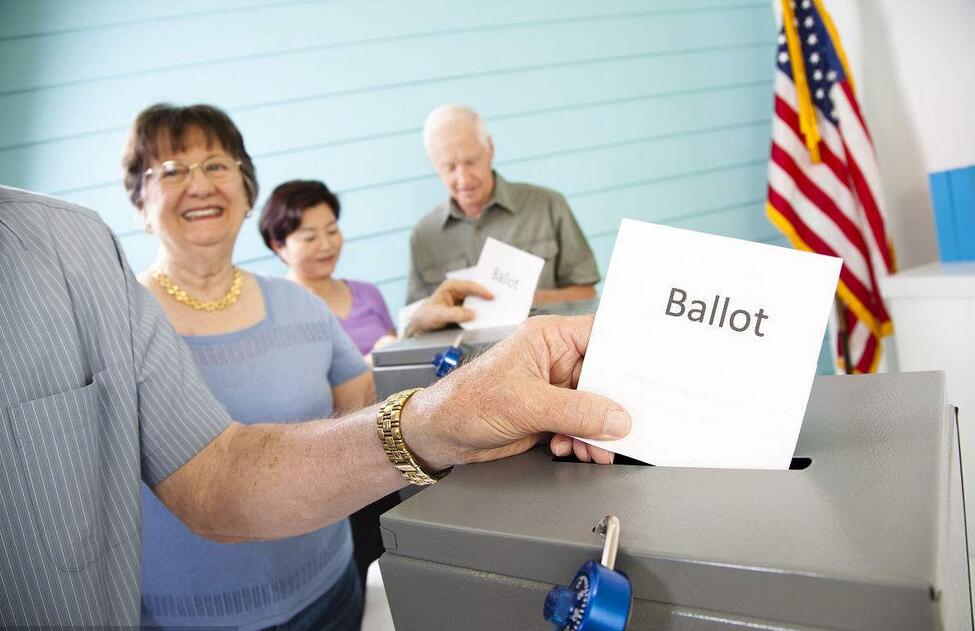Leaders
領導力
Youth and Democracy: Vote early, Vote often
青年與民主:早投票,多選舉
Why the voting age should be lowered to 16?
為什么選舉年齡應該降低至16歲?
How young is too young?
到底幾歲才算太年輕?
Rich democracies give different answers, depending on the context: in New Jersey you can buy alcohol at 21 and cigarettes at 19, join the army at 17, have sex at 16 and be tried in court as an adult at 14.
發(fā)達的民主國家給出了不同的答案,取決于事項的不同:在新澤西州,年齡達到21歲可以買酒,19歲可以買煙,17歲可以參軍,16歲可以有性生活,14歲就可以被當作成年人出庭受審。
Such thresholds vary wildly from place to place.
類似這樣的門檻不同地方有較大差異。

Belgian youngsters can get sozzled legally at 16.
比利時的年輕人在16歲就可以合法飲酒。
But on one thing most agree: only when you have turned 18 can you vote.
但是在一件事上大多數(shù)國家都是一致的:只有年滿18歲才有選舉權(quán)。
When campaigners suggest lowering the voting age, the riposte is that 16- and 17-year-olds are too immature.
當人們宣傳建議降低投票年齡時,反對的人說16、7歲的年輕人還太不成熟。
This misses the real danger: that growing numbers of young people may not vote at all.
這會使人們忽視真正的危險:越來越多的年輕人可能根本不再去投票。
The trend across the West is disturbing.
整個西方的這種趨勢很令人不安。
Turnout of American voters under 25 at presidential elections fell from 50% in 1972 to 38% in 2012; among over-65s it rose from 64% to 70% (data for the 2016 election are not yet available).
25歲以下的美國選民參與總統(tǒng)選舉的投票比例從1972年的50%降到2012年的38%;超過65歲的選民的投票比例由64%增長到70%(2016年的選舉數(shù)據(jù)還未公布)。
For congressional races, the under-25 vote was a dire 17% in 2014.
2014年的國會議員選舉,25歲以下的選民的投票比例只占寥寥17%。
A similar pattern is repeated across the rich world.
類似的模式正在發(fā)達國家不斷重現(xiàn)。
Young people’s disenchantment with the ballot box matters because voting is a habit: those who do not take to it young may never start.
年輕人對民主投票的覺醒至關重要,因為投票是一種習慣,那些沒有投票習慣的年輕人或許永遠不會開始投票。
That could lead to ever-lower participation rates in decades to come, draining the legitimacy of governments in a vicious spiral in which poor turnout feeds scepticism towards democracy, and vice versa.
這樣會使參與度逐年走低,使政府的合法性陷入惡性循環(huán),因為低投票率會滋生對于民主的懷疑,反過來這種懷疑又造成低投票率。
The disillusionment has many causes. The young tend to see voting as a choice rather than a duty (or, indeed, a privilege).
這種幻滅的產(chǎn)生有多種原因。年輕人往往將投票視為一種選擇而非義務(或者說,這事實上是一種特權(quán))。
The politically active tend to campaign on single issues rather than for a particular party.
政治活動家傾向于就單一問題進行宣傳,而不是為某一特定的政黨進行宣傳。
Politicians increasingly woo older voters—not only because they are more likely to vote but also because they make up a growing share of the electorate.
政客們越來越多地拉攏年長的投票者,因為年長選民不僅更有可能投票,而且人數(shù)在選區(qū)中占的比例越來越大。
Many young people see elections stacked against them.
很多年輕人都覺得選舉對他們不利。
It is no surprise, then, that many of them turn away from voting.
所以毫無意外的很多年輕人都不去投票。
Some countries make voting compulsory, which increases turnout rates.
一些國家施行強制投票制以增加投票率。
But that does not deal with the underlying disillusionment.
但是對選舉的期待終會破滅,強制的做法對此無能為力。
Governments need to find ways to rekindle the passion, rather than continue to ignore its absence.
政府需要找到新方法重新點燃選民的熱情,而不是繼續(xù)不顧選民低沉的士氣。
A good step would be to lower the voting age to 16, ensuring that new voters get off to the best possible start
一個有益的做法是把投票年齡降低到16歲,這能確保新選民能在最好的狀態(tài)下開始投票。
This would be no arbitrary change.
這并非是未經(jīng)深思熟慮而做出的改變。
譯文來源考研英語時事閱讀











